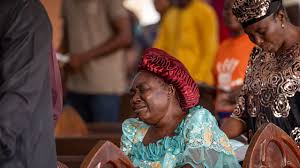On August 5, 2019, the Indian government stripped Jammu and Kashmir of its special autonomous status granted under Article 370 of the Indian Constitution, reconfiguring it into two Union Territories under direct central control.
This move marked a turning point that drastically altered the political and social landscape of the troubled region.
As the sixth anniversary of this revocation approached in 2025, the region was gripped by rumors of further administrative changes and unusual military activities, stirring anxiety among Kashmiris.
In this tense atmosphere, the government took a dramatic and controversial step: it officially banned 25 books, including A Dismantled State: The Untold Story of Kashmir After Article 370 (published in 2022 by HarperCollins), authored by Anuradha Bhasin, among other notable works by writers like Arundhati Roy, Anuradha Bhasin, Hafsa Kanjwal, and Sumantra Bose.
The official government order accused these books of promoting “false narratives,” secessionism, and of “glorifying terrorism,” thereby threatening the sovereignty and integrity of India. The ban extends further by criminalizing the possession, sale, or distribution of these books, with heavy penalties including imprisonment.
This sweeping action was justified by claims of preventing the “systematic dissemination of false narratives” that allegedly radicalize youth and incite violence against the Indian state.
My book, based on extensive research, eyewitness accounts, and data collection, breaks through the Indian government’s carefully crafted narrative of peace and normalcy in Kashmir post-2019.
It documents the harsh reality of continued military occupation, widespread restrictions on communication and civil liberties, suppression of political dissent, crackdowns on journalists, and the incarceration of thousands of people—including prominent pro-India politicians.
Since the abrogation of Article 370, Kashmir has seen an intensified militarization, where barbed wire barricades and curfews have become the norm. Internet blackouts and censorship have crippled free expression, as local newspapers are financially suffocated unless they toe the government line.
Genuine journalistic inquiry has been replaced with government propaganda, erasing vivid, complex histories and the voices of Kashmiri communities.
The government’s narrative of “development” and “peace” was shattered by incidents such as the April 22, 2025 killing of 26 civilians—events that punctured New Delhi’s claims of restored normalcy. Instead of reevaluating its policies, the administration tightened its grip, demolishing homes, detaining activists, restricting free speech, and imposing draconian laws like the Public Safety Act which allows detention without charge for up to two years.
The ban on these 25 books exemplifies a broader strategy to erase counter-narratives and historical memory that challenge the official version of Kashmir’s status and future.
Labeling dissent and critical scholarship as “seditious,” the government seeks to control not only what can be said but also what can be read, aiming to create a “thought police” apparatus that crushes intellectual freedom within the region.
This censorship comes paradoxically alongside state-sponsored cultural events like the Chinar Book Festival in Srinagar, revealing the contradiction in promoting literature publicly while silencing critical voices privately. Critics and scholars argue that banning these works only deepens alienation and mistrust, making genuine reconciliation and peace impossible.
Local communities, journalists, and academics warn that such silencing severely undermines research, freedom of expression, and democratic principles in Kashmir. Publishers now face daunting challenges, with legal hurdles and the threat of confiscation impeding critical works on Kashmir, fostering an environment where truth is suppressed for political convenience.
Ultimately, the ban reflects India’s discomfort with confronting Kashmir’s lived realities post-Article 370. It exposes New Delhi’s reliance on militarized control and surveillance rather than dialogue and justice and underscores the urgent need for the world to pay attention to the ongoing struggles beneath the surface of official claims.



